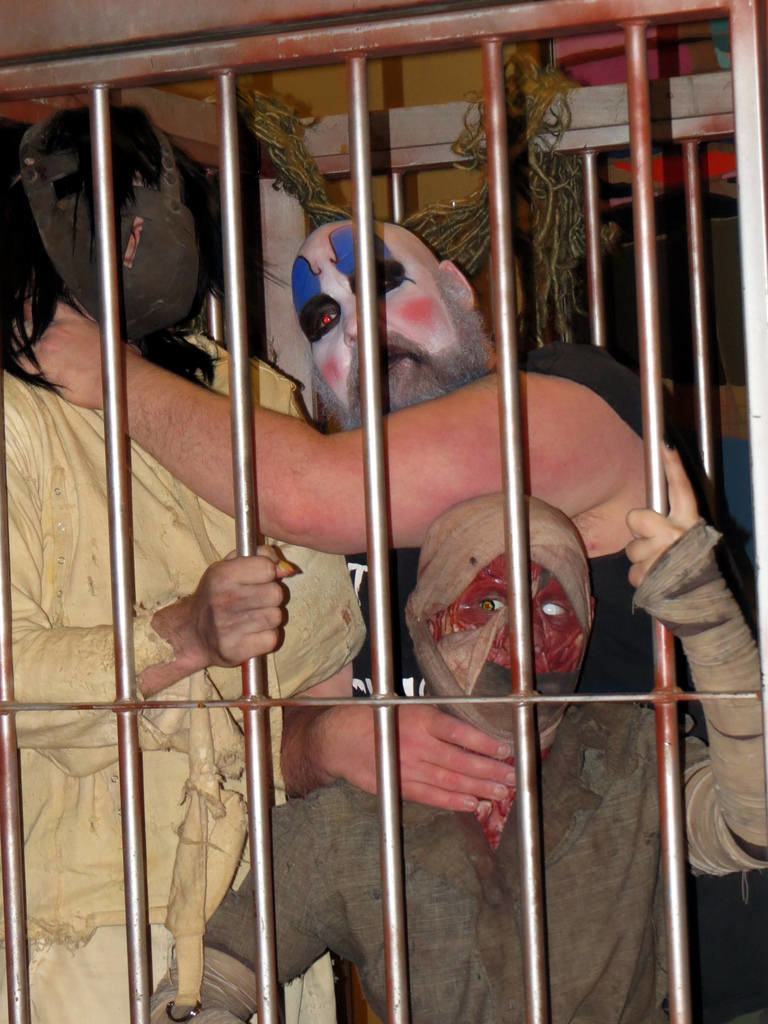Blog |
|
I just came back from a play reading about five clowns trapped in a jail cell.
Although the play had it’s humorous moments, such as the secret clown hand shake, I was surprised and a bit put off by the amount of angst in the piece. For example, the play opens with one of the clowns screaming at God, expressing his disapproval for the job he has done and even goes as far as to say that he hates God. The actor was great, the director too, but the uneasy text just did not work. Angst is a interesting dramaturgical element. It rarely works, and when it does, it takes a very skilled writer to pull it off. What happened to the Angsty Girl? When I was in college, I loved to do shows that had lots of agony in them. We all did right? College was our rebellious time, when plays like Hair, Spring Awakening, Orphans and Getting Out seemed really cool. We got to express ourselves, complain out loud and in front of other people. Our parents might even have been in the audience and therefore hear our passive aggressive cry for help and stop suppressing us! I honestly think I am too old for angst now. What happened to the rebellious college kid of yesteryear? I liked her! She had passion, spunk, and seemed tireless! She directed and starred in shows that said “Bleep You society!” and “Take that world!”-shows like Look Back in Anger and Shadow Box which featured female characters who were strong, independent, and didn’t take anybody’s crap! Where did she go? I think she grew up and became someone who wanted to mount shows with some iota of hope in them. For example, last year I directed a show for The Syzygy Theatre Company called Tender. The play was offered to another director before me who turned it down because he felt it was too depressing-too full of angst. I accepted the job because when I read it, I saw a play about a group of young Londoners who are all searching for some tenderness in their very difficult, lonely, stressful lives. Sounds angsty right? Not when Abby Morgan writes it. Abby is a gifted and skilled writer who does not focus on the angst and complaints of her characters, but instead focus’ on what her characters are hungry for and the lengths they will go to get it. The angst therefore comes out of action, instead of being thrown into dialogue without any action backing it up. And although the play ends with a couple breaking up, an affair revealed and a friendship ending, it still manages to end with a degree of hope. Suggestions to make sure your angst is connected to action Exercise #1-Look for the “Action and Objective” Action is what the character does to get what they want and the objective is what the character wants. For example, in Hamlet, the title character wants to prove to himself that Claudius killed the king (so that he can seek revenge for his father’s murder with a clear conscience). He does many things to achieve this objective, and his actions change depending on the scene. Each angsty scene in your play or screenplay should have an action and an objective in order to be effective. You may ask, why do my scenes need action? First, because “drama” is the Greek word for “action”. But also because I believe that action is what an actor needs in order to play a scene. I don’t believe that an actor can play an emotion, or a situation, or an atmosphere. Actors also need an objective for their character or the scene will fall short. If you can not find an action and objective, then your angsty scene needs to be rewritten. Exercise #2: Find the Function The other trick to check whether or not your angsty scene works is to take a look at the scenes in your script and discover what it’s function is — that is, how the scene serves the story. The function of a scene is the reason the scene is in the play, the purpose it serves in moving the story forward. For example, the function of the Ghost scene in Hamlet is to plant doubt in Hamlet’s mind—perhaps his father did not die of natural causes. I have to admit that sometimes the function of the scene is a device used by the playwright. For example, the purpose of the gravedigger scene in Hamlet is to provide some comic relief at a time in the script when Ophelia has died, Hamlet has been banished, and there is nothing but despair in the kingdom. Finding the function of each scene can be a useful tool, because if the scene does not serve the story, you might want to ask yourself whether you need it at all. It doesn’t matter how brilliant the dialogue is, how witty you think the moment is, how much your ego is involved in the writing. If it does not serve the story, let it go. Well, that is my angsty diatribe about angst. Form does follow function afterall. written by Che’Rae Adams for NOHOARTSDISTRICT.COM Jan 2009
1 Comment
|
by Che'Rae AdamsProducing Artistic Director of the LAWC Archives
July 2015
Categories |


 RSS Feed
RSS Feed